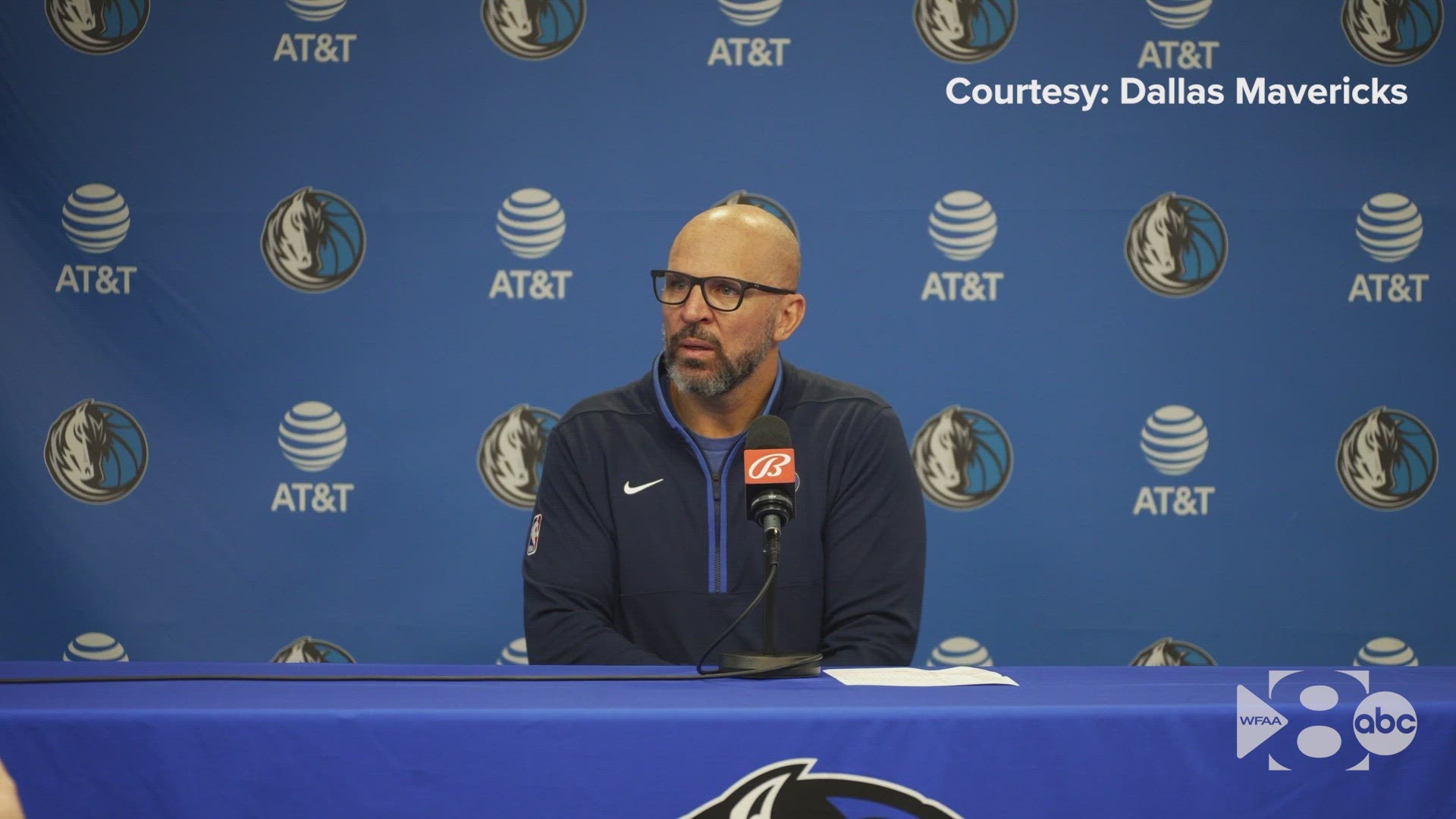DALLAS — The Dallas Mavericks fell to the Golden State Warriors on March 22, 127-125, but not without controversy.
And as of this Wednesday, the NBA is looking to end that controversy.
The association has denied the team's formal protest of the loss to the Warriors.
What happened after the Mavericks-Warriors game?
Mavericks owner Mark Cuban reportedly filed the protest with focus on an alleged referee mistake that led to two free Warriors points late in the third quarter.
Cuban tweeted that night that with 1:54 left in the third quarter, the referee declared Mavericks possession. There was a timeout called and during the timeout, Cuban says the referee changed the call but never told the Mavericks. With the entire Mavericks team lined up on the other side of the court, the referee gave the ball to the Warriors on the baseline and a bucket was easily scored.
Head coach Jason Kidd and guard Luka Doncic told the media after the game they all believed it was still their possession.
"There was confusion," Kidd said. "A lot of people were out of position."
"It was kind of weird," Doncic said. "I was surprised. I've never seen that happen in my life."
According to the NBA pool report, crew chief Sean Wright said the original signal on the floor was Golden State possession, followed by a second signal given for a mandatory timeout due to the Mavs.
However, Kidd and Doncic both said one of the referees was down on their end of the floor, indicating the referee also believed it was still Mavericks possession. Cuban also tweeted about the third referee being on their side of the floor.
How did the NBA respond?
In a press release, the NBA argued against the Mavs' protest about the referee's call that led to the Warriors' easy bucket. They basically say the team had plenty of time to bounce back and win the game.
"...the incident occurred with nearly 14 minutes remaining in the game, and Dallas thereafter took the lead twice in the final four minutes. Under these these circumstances, Dallas not able to show -- as required under the standard for NBA game protests -- that it was deprived of a fair opportunity to win the game, and the protest failed on that basis alone."
The association also argued against Mark Cuban's tweets about the referee changing the call during the timeout.
Not only did they say the claim wasn't true ... the league also said the team agreed in their written protest that the referee "signaled possession to Golden State."
"The NBA concluded that although the game officials could have taken steps to better manage this particular situation, that did not provide a basis for the extraordinary remedy of upholding a game protest."
Has there ever been a successful NBA protest?
According to NBA correspondent Marc Stein, Dallas unsuccessfully lodged a protest after a loss to Atlanta in Feb. 2020, and Cuban was subsequently fined $500,000.
No NBA protest has succeeded since 2008, Stein reported.
The 2008 successful protest was awarded to the Miami Heat after a 117-111 loss to the Atlanta Hawks, where the final 51.9 seconds of the game were replayed.
In this case, then-Heat center Shaquille O'Neal was mistakenly called for his sixth foul of the game when it was really only his fifth. The Hawks scoring table incorrectly attributed a foul to O'Neal from earlier in the game that should have been given to Udonis Haslem. Thus, the foul committed by O'Neal was actually his fifth and not his sixth, which would disqualify him from the game.
The Hawks ended up winning the replay, anyway, with a 114-111 final score rather than 114-111. It was the NBA's first replay since 1983, according to the Associated Press.
The fact that the game ended in a two-point loss (thanks to a buzzer-beating three-pointer from Reggie Bullock) makes this formal protest from Cuban and the Mavericks all the more interesting.
With precedent mentioned above, would the Mavericks and Warriors really have to tip off and replay the rest of their game from 1:54 left in the third quarter onward?
There is no denying the result of this Mavericks-Warriors game has massive playoff implications. The loss credited to Dallas dropped them to 10th place and propelled Golden State to 6th place. There are only three games separating the No. 4 seed and No. 12 seed in the Western Conference. The top six seeds automatically qualify for the playoffs and the 7th through 10th seeds compete in a play-in tournament for the final spot.
More Texas headlines:

